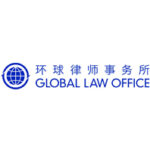-
What is the legal framework (legislation/regulations) governing bribery and corruption in your jurisdiction?
The main anti-bribery and corruption legislation enacted in Israel is the Penal Law, 5737-1977 (“the Penal Law”) and the Prohibition on Money Laundering Law, 5760-2000 (“the Anti-Money Laundering Law”).
Penal Law
The bribing of domestic public officials constitutes a criminal offence under Sections 290 and 291 of the Penal Law, with Section 290 regulating the act of taking a bribe by a public official and Section 291 dealing with the offence of giving a bribe. The two offences are, therefore, completely independent. On July 14, 2008, the Knesset (the Israeli Parliament) approved Amendment No. 99 to the Penal Law. As a consequence, a new Section 291A regulating the offence of bribing a foreign public official was duly incorporated into the Penal Law. Sections 292-295 of the Penal Law define different situations that would also be deemed a bribe such as, for example, a bribe in sporting or other competitions; offering a bribe or requesting a bribe, that would be considered as giving or taking a bribe, respectively; brokering a bribe; and a bribe in exchange for senior appointments. Section 284 of the Penal Law prohibits a public servant from committing fraud or a breach of trust that harms the public. The Israeli legislator did not define the meaning and scope of the expression “breach of trust”, but the Israeli Supreme Court established the essence of the offence in Cr.App, 884/80 State of Israel v. Yitzhak Grossman, 36(1) 405 (1981): “A public servant is placed in a situation of trust towards the State, which entrusted to the worker authorities and powers. Use of such authorities and powers comes to serve the interest which the power and authority came to realise. They do not come to serve any other interest. In fulfilment of such duty, the public servant must act faithfully. A public servant who breaches the trust conferred on him and acts in a manner that does not realise the interest with which he was entrusted, is in breach of trust. Thus, for example, a public servant who places himself in a conflict of interest situation, is in breach of trust. A public servant who uses internal information that reaches him as part of his position for his own personal purposes, is in breach of trust.”
Anti-Money Laundering Law
The Anti-Money Laundering Law was promulgated in 2000, within the ambit of combatting money laundering and preventing acts sourced from criminal activity. The gist of the Anti-Money Laundering Law expressly prohibits doing anything with property that is sourced from the commission of a criminal offence that is mentioned in the Anti-Money Laundering Law, inter alia, a bribery offence, aimed at hiding its source and the identity of its owners. A person engaging in money laundering will be charged with having committed a criminal offence and will be punished according to sanctions as set out in the Anti-Money Laundering Law. Following the promulgation of the Anti-Money Laundering Law, various orders and sub-regulations were enacted imposing duties on service providers including, banking corporations, lawyers and accountants, designed to combat money laundering attempts through the financial system. Such orders oblige the financial service providers to receive and verify the identification details of all persons seeking to perform transactions through them, as well as to submit reports on certain transactions for storage on the database maintained by the Israel Money Laundering and Terror Financing Prohibition Authority (“IMPA”) established by the Ministry of Justice for such purpose.
-
Which authorities have jurisdiction to investigate and prosecute bribery and corruption in your jurisdiction?
The authority to investigate a person suspected of having committed a bribery offence vests on the Israel Police. The Lahav-433 unit is an exclusive investigation unit that was established within the Israel Police for the purpose of investigating serious crimes and public corruption. In certain complex cases, prosecutors from the State Attorney’s Office accompany the police investigators during the course of the investigation. At the end of the investigation, the Police investigating unit transfers the case to the Prosecution, which is vested with the authority to file an indictment against a suspect if it considers it correct, and if there is a reasonable chance of a conviction in the case. The State Attorney’s Office comprises of 14 headquarters units and 13 District Attorney Offices. Most bribery-related cases and all cases concerning government corruption are managed by the Tel-Aviv District Attorney’s Office (Taxation and Economics) or the State Attorney’s Office—Economic Department, being the Prosecution that specialises in handling white collar crime and complex governmental and corporate corruption, as well as complex economic offences, including securities offences, money laundering and tax offences.
-
How is ‘bribery’ or ‘corruption’ (or any equivalent) defined?
Sections 290 and 291 of the Penal Law describe a bribe as any consideration having a benefit, in money or money’s worth that is given to a public official in purpose that he will act in relation to his position. The definition ascribed to the term “gift” under Israeli law is extremely broad, so that any benefit can be considered a bribe. Today, the Public Service (Gifts) Law generally prohibits public servants from accepting gifts by virtue of their status as public servants, except for small and reasonable gifts customary under the circumstances. In February 2023, a bill was introduced in the Knesset to amend the Public Service (Gifts) Law to permit donations to public servants for the purpose of financing legal proceedings or medical treatments for themselves or their family members. It is noteworthy that the bill ultimately failed to pass. In order to obtain a conviction for the giving or taking of a bribe, several elements are required to be proven, regarding the recipient of the bribe and the nature of the bribe in question, such as the person being bribed is a public servant, who could also be a governmental company employee; that the bribe was given in consideration for the action of the public servant and in relation to his position; and the intention of the giver of the bribe to the result that would necessarily ensue from commission of the offence. Under Section 293 of the Penal Law, it is immaterial whether the bribe was given by the giver himself or through another person; whether it was given directly to the person who took it or given to someone else on such person’s behalf; whether it was given in advance or after the event for which the bribe was given or taken; and whether it would benefit the person who took it or any other person. See, for example, Cr.C. (TA) 10291-01-12 State of Israel v. Charney, which discussed one of the largest bribery cases in Israel—the Holyland case—and in which, inter alia, Uri Lupolianski, the former Mayor of Jerusalem, was convicted of having taken a bribe for receiving donations in an amount exceeding NIS 2 million (approximately US $585,823 at current rates). The bribe was taken on behalf of an organisation established by Lupolianski—“Yad Sarah”, a volunteer non-profit organisation which provides services to persons with disabilities, yet the court still considered the sums of money as bribe. Section 294(d) of the Penal Law provides that in order to determine the existence of a bribery offence, it is immaterial if the person taking the bribe did not perform the act for which the bribe was given, had no intention of performing it or was not authorised or entitled to perform it. In Israeli law, the concept of “corruption” lacks a precise definition and is construed broadly, with its interpretation contingent upon the specific circumstances of each case. It encompasses actions such as the abuse of public office to procure favors or personal benefits.
-
Does the law distinguish between bribery of a public official and bribery of private persons? If so, how is 'public official' defined? Is a distinction made between a public official and a foreign public official? Are there different definitions for bribery of a public official and bribery of a private person?
One of the elements constituting a bribery offence in Israel is that the bribe was given to a “public servant”, within the meaning of such term in Section 34X of the Penal Law. The term “public servant” is defined very broadly and includes employees in the employ of the State, local regulatory authorities, governmental companies, etc. In addition, the term “foreign public official” is defined in Section 291A(c) of the Penal Law as meaning any person who is employed by a foreign country’s regulatory authorities, a person holding public office as well as an employee of a public international organisation. Further, the giving of a benefit to a private person for an action related to his position does not constitute a bribe. Nevertheless, Section 425 of the Penal Law provides that an employee of a corporation, who, in fulfilment of his duty, acted fraudulently or in breach of trust, may be sentenced to three years’ imprisonment. An offence of fraud and breach of trust in a corporation refers to the action of an officer in the management of a corporation who makes a false factual representation knowing that he is abusing his position and his access to information in the company, for the purpose of promoting his own personal goals rather than the good of the corporation, even when the act did not actually harm the corporation.
-
Who may be held liable for bribery? Only individuals, or also corporate entities?
In Israel, both individuals and corporations may be prosecuted for bribery offences. Section 23(a)(2) of the Penal Law sets out the scope of corporate criminal liability for offences committed with criminal intent or negligence (bribery of public officials is an offence that requires proof of criminal intent). Under Section 23(a)(2), criminal liability can be imposed directly on corporations, if, under the circumstances, the perpetrator’s actions and criminal intent or his negligence, while committing the offence, can be regarded as the actions and criminal intent or negligence of the corporation, in light of the perpetrator’s position, authority and responsibilities in managing the corporation’s business. Israeli case law has established two alternative tests in order to determine whether a person would be considered a corporate organ: the organisational test and the functional test. Additionally, after establishing that the perpetrator is the corporation’s organ, according to Israeli case law, the court must determine, as a matter of legal policy, whether it is appropriate for the corporation to be held criminally liable for the actions of its organ. In so doing, the court will need to consider the following questions: (1) did the legislation intend to exclude corporate criminal liability from its scope; (2) did the organ act in the course of fulfilment of his duties; and (3) was the act committed by the organ intended to benefit the corporation or, at the very least, not directed against it. Thus, if a person committees a bribery offence is considered an organ of the corporation on the basis of satisfying either the organisational or functional test, and if the court holds that it is appropriate for the corporation to be held liable for the actions of the organ, then the corporation will be deemed criminally liable for the bribery offence committed by its organ. Amendment 103 to the Penal Law, enacted on February 4, 2010, notably heightened the penalties associated with offenses involving bribery. In relation to bribery offenses, where monetary fines constitute the primary punitive measure for corporations, the maximum fine applicable to a corporation is stipulated as tenfold the maximum fine prescribed for an individual under Section 61(a)(4) of the Penal Law.
-
What are the civil consequences of bribery and corruption offences in your jurisdiction?
In Israel, there is no civil sanction for a bribery offence and corruption offences, but any person, who considers himself as having been harmed by an act of bribery or corruption committed by someone else, can file a civil lawsuit, to the extent such person suffered damage as a result of such act.
-
What are the criminal consequences of bribery and corruption offences in your jurisdiction?
The penalty for taking a bribe under Section 290(a) of the Penal Law is a maximum of ten years’ imprisonment, or the higher of either a fine five times greater than that specified in Section 61(a)(4) of the Penal Law (i.e., NIS 1,130,000, approximately US $300,531 at current rates), and if the offense was committed by a corporation a fine ten times greater (i.e., NIS 2,260,000, approximately US $601,063 at current rates), or a fine four times greater than the value of the benefit the perpetrator gained or intended to gain by committing the offence. The penalty for bribing a public official under Section 291 of the Penal Law is a maximum of seven years’ imprisonment or a fine as prescribed in Section 290(a) of the said Law. When a person has been convicted of giving or taking a bribe, in addition to the imposed penalty, the court may, under Section 297 of the Penal Law, order the forfeiture of what was given as a bribe. The court may also order the person who gave the bribe to pay to the State Treasury the value of the benefit he derived from the bribe. It should be noted, in this respect, that, according to Section 4 of the Interpretation Law, 5741-1981, the term “person”, includes a corporation. The penalty prescribed for a public servant found guilty of the offenses of fraud or a breach of trust that harms the public as stipulated in Article 284 of the Penal Law is a maximum of three years’ imprisonment.
-
Does the law place any restrictions on hospitality, travel and/or entertainment expenses? Are there specific regulations restricting such expenses for foreign public officials? Are there specific monetary limits for such expenses?
The Public Service (Gifts) Law, 5740-1979 (“the Public Service Gifts Law”) and the Public Service Regulations (Gifts), 5740-1979, prohibit, subject to certain restrictions, a public servant from receiving property, a service or any other benefit without consideration. The consideration must be from the personal pocket of the public servant and not by giving benefits from the public servant to the giver of the gift, since this would constitute an offence of accepting a bribe. A breach of the provisions of the Public Service Gifts Law constitutes a criminal offence. The Public Service Gifts Law not only prohibits the receipt of gifts by a public servant, but also by his family members. In addition, it should be noted that in a decision of the Knesset Ethics Committee concerning the financing of overseas trips by Knesset Members, it was determined that the Public Service Gifts Law applies also to Knesset Members, which are prohibited from accepting payment for overseas travel expenses or lectures given by them at overseas locations, that might be considered as grant of a material benefit, save for a refund of actual expenses. Likewise, Guidelines published by the Attorney General in May 2020 (Guideline No. 1.1709) regarding restrictions on the receipt and distribution of invitations and tickets for shows and events, generally prohibit public servants from receiving gifts, including tickets or invitations to shows and events that the entrance to which requires payment of an admission fee, either without consideration or at a reduced cost, unless the event in question is held within the framework of fulfilment of the public servant’s role. In addition, specific Directives apply to both soldiers in the Israel Defence Forces as well as to employees of the Israeli Ministry of Defence, as enumerated below. The policies and procedures to which soldiers in the Israel Defence Forces (“IDF”) and Ministry of Defence (“IMOD”) personnel travelling abroad in the course of their military duties are subject are set out in IDF General Staff Order 8.0201 titled “Out of Country Travel on Duty”, IMOD Directive 64.10 titled “Out of Country Travel of Security Personnel (including IDF)” and IMOD Directive 64.19 titled “On-Duty Travels of Envoys to Israel and to Other Countries”. Generally, the above Directives specify that overseas travel shall be approved by special authority which will examine several parameters, including that the traveller will not be found in a conflict of interests situation as a consequence of the trip; that there was no prior connection between the financing body and the traveller; that the financing body played no role in selecting the traveller; that the travel conditions are similar to those granted for travel that is financed by the defence system; and that the financing body is included in the list of bodies that have been approved for external financing. The Directives prohibit a traveller from accepting any valuable item from the financing body. Receipt of a gift from a foreign body is regulated in Directive No. 33.0112 titled “Gifts, Benefits, Donations, Fundraising and Fines”, which provides that a soldier in the IDF may not request or receive any form of gift in his capacity as a soldier, as a consequence of his role in the IDF or in consideration for an act performed as part of his military service. The prohibition extends also to the receipt of gifts by the soldier’s family members. However, the Directive specifies special circumstances where it is impossible to refuse acceptance of the gift (the foregoing if the refusal will be interpreted as deviating from the rules of etiquette that apply between representatives of foreign countries, or if it will be deemed as insulting the giver of the gift, etc.), in which case the soldier may accept the gift on the condition that immediately upon receiving it, he will submit a report about it as stipulated in the Directive. In addition, the Directive provides that a soldier may accept gifts of small value, or that are of symbolic value only. The aforementioned provisions apply to Israeli public servants and no similar guidelines have been published specifically referring to foreign public officials. Nevertheless, as noted above, the giving of items, which may include hospitality, travel and entertainment benefits, might amount to the giving of a bribe to a foreign public official.
-
Are political contributions regulated? If so, please provide details.
The Political Parties Financing Law, 5733-1973 (“the Political Parties Financing Law”) regulates the sources of funding of political parties that are represented in the Knesset. The Political Parties Financing Law imposes restrictions on the receipt of contributions by political parties in order to maintain the equality value in elections, as well as the principle of trust that obliges elected candidates not to depend on contributions by the wealthy. The Political Parties Financing Law provides that any person with a right to vote in the Knesset may contribute moneys to political parties. The maximum amount that may be permitted to be donated is NIS 1,100 (approximately US $292at current rates), and in the year in which elections are held, the maximum permitted amount is NIS 2,300 (approximately US $611 at current rates). For a political party that is not represented in the Knesset, a contribution five times those amounts may be made. A political party may not receive contributions from someone who has no voting right or a corporation, except for agricultural societies, such as kibbutzim. Likewise, it is not possible to accept contributions made anonymously. In order to strengthen the transparency with respect to contributions, the State Comptroller has determined that in an election year, each political party must regularly publish on its website contributions having a value of NIS 1,000 (approximately US $265 at current rates) or more.
-
Are facilitation payments prohibited or regulated? If not, what is the general approach to such payments?
As noted by us in our response to question 1, in 2008 Section 291A of the Penal Law was enacted which prohibits the giving of a bribe to a foreign public official. Until the enactment of this section, it was possible to make facilitation payments to foreign public officials but, as aforesaid, from the date of entry into effect of the section, this is no longer possible, and the current approach is that facilitation payments would be deemed as bribery.
-
Are there any defences available to the bribery and corruption offences in your jurisdiction?
No particular defence exists with regard to giving a bribe to a foreign public official, but an indictment that is filed in respect of such offence must include the written consent of the Attorney General, due to the evidentiary, public and international complexity associated with such offence. Nonetheless, Part Two of the Penal Law recognises reservations, defences and exceptions for all criminal offences where what is common to all is that although the law recognises that an offence has been committed (including bribery for this purpose), an exemption from conviction exists in light of circumstances, justifications or values which society regards as more important.
-
Are compliance programs a mitigating factor to reduce/eliminate liability for bribery and corruption offences in your jurisdiction?
The implications of implementing a compliance program has been discussed by the courts, but has not yet been firmly established in Israeli case law as a defence for reducing or eliminating criminal liability that may be attributed to a corporation for a bribery offence, committed by any of its organs. Implementing a compliance program may be a factor in the court’s decision to approve a plea bargain. In the Siemens Israel case, Siemens AG paid, through Siemens Israel Ltd., US $2.5 million in bribes to top executives at Israel’s power utility, The Israel Electric Corporation Ltd., in return for awarding tenders to Siemens valued at hundreds of millions of Euros. The Tel Aviv District Court remarked that the compliance programs that Siemens Israel Ltd. had implemented before the criminal investigation was initiated against it—constituted a major consideration in its decision to approve the plea bargain. Nevertheless, implementing a compliance program before an organ of the company commits an offence, may certainly be a consideration to bear in mind when deciding not to file charges against the corporation. Thus, for example, the Israeli Securities Authority has stated in guidelines published by it that where a corporation implemented an effective compliance program prior to the occurrence of the offence, it will consider recommending the Prosecution not to file criminal charges against the corporation and instead initiate administrative proceedings against it. On October 2, 2019, the State Attorney established standards in Guidelines for the prosecution and punishing of a corporation (Guideline No. 1.14). One of the criteria for prosecuting a corporation is the degree of failure in the culture of compliance within the organisation, and the existence or absence of an effective compliance program. In so far as the circumstances of the offence indicate widespread failure on the part of a corporation, then the public interest in prosecuting the corporation will naturally be stronger. According to the Guidelines, when considering the extent and scope of the failure on the corporation’s part, the Prosecution must consider, inter alia: the number of employees and office holders involved in the commission of the offence; whether the corporation has committed other offences or violations of law in the past; the extent to which the offences formed part of accepted practice within the corporation; and whether the failure is local, despite the existence of a culture of compliance within the organisation, or is widespread. According to the Guidelines, key manifestation of a culture of compliance within an organisation is the existence of a compliance program. The Guidelines further provide that the existence of a compliance program does not exempt the corporation from criminal liability, nor is it deemed a consideration that would prevent a corporation from being prosecuted. However, the existence of an internal compliance program would be considered a mitigating factor when it can be demonstrated that the program is effective and, in practice, is accompanied by an organisational culture that encourages compliance. Under the guidance of the State Attorney, no uniform definition has been ascribed to the content of the internal compliance program, and it should be tailoured to suit the individual and specific needs of each corporation, based on its inherent characteristics. However, the Guidelines specify a number of components that should largely be included in an effective compliance program, namely that: 1. The compliance program is based on an assessment of the major risk factors of the corporation, according to its characteristics. 2. The compliance program establishes principles of action and procedures for the prevention and detection of offences in areas identified as risk factors for the corporation. 3. The senior echelons in the corporation are familiar with the content of the compliance program and are working to implement it. 4. An employee within the corporation has been appointed and tasked with responsibility for the compliance program. 5. The corporation maintains training and updating mechanisms regarding the principles of the compliance program for its employees and related entities. 6. The corporation exercises reasonable control and supervision measures to ensure implementation of the compliance program. 7. The corporation makes periodic assessments regarding the effectiveness of the program, re-assesses risks and adjusts the enforcement mechanisms accordingly. 8. The corporation has in place mechanisms that allow employees and other individuals to report on corporate violations and that also facilitate anonymous reporting mechanisms. 9. The compliance program is enforceable in practice by taking proper disciplinary measures against employees in the organisation who violate the law or against those responsible for the corporate compliance failures. It is important to note that the burden for demonstrating that an organisation has in place an effective compliance program vests on the corporation and, therefore, it is imperative to document all processes related to the establishment and implementation of an appropriate and effective compliance program within the organisation.
-
Has the government published any guidance advising how to comply with anti-bribery and corruption laws in your jurisdiction?
In addition to the Guidelines published by the State Attorney as referred to in our response to question 12 above, which addressed certain elements that should be considered effective for inclusion in compliance program for preventing the prosecution of a corporation, several Israeli regulatory authorities published recommendations and directives for enforcement of the anti-corruption laws, particularly in connection with the bribing of foreign public officials. On the website of the Israeli Ministry of Justice, reference is made to the OECD Convention on Combatting Bribery of Foreign Public Officials in International Business Transactions. In this connection, the Ministry of Justice has published recommendations for corporations, aimed at raising their employees’ awareness to the offence of bribing a foreign public official; that training programs aimed at preventing offences of this nature be initiated and implemented; and that internal mechanisms be established to similarly prevent offences of this nature. Moreover, the Ministry of Justice recommends that measures be taken to encourage employees to report to the corporation’s management of any suspected activity within the corporation related to the bribing of foreign public officials. The website also contains a link to the OECD’s recommendation as published on its website titled “Good Practice Guidance on Internal Controls, Ethics, and Compliance” for corporations to implement and uphold. Likewise, on May 9, 2017 the Israeli Defence Export Controls Agency (a department within the IMOD) published guidelines regarding the implementation of an anti-corruption compliance program by corporations engaging in the export of defence products, know-how and technologies. The guidelines provide that corporations engaging in this field are duty-bound to implement internal norms preventing payment of a bribe to foreign public officials, and to have in place an efficient compliance program in this regard, containing the following core elements: clear and stated policies of the corporation’s management regarding anticorruption; a corporate compliance officer in the anticorruption field; clearly-established guidelines and rules regarding payments such as gifts, donations and hospitality; employee training; internal control; an accounting control system; document recordal and management; and disciplinary measures. The anti-corruption compliance program should include, at least, the core elements described above, but this should not be deemed a closed list of items, and each corporation must accordingly formulate a compliance program that best suits its stature and scope of activity. Also IMPA has published a document titled “Prohibition on Money Laundering Originating from Corruption and Bribery of Foreign Public Officials and the Manner for Identifying Irregular Activities Relating to Them”. The purpose of the document is to identify “red flags” and caution against illegal activity being carried out by foreign public officials, and to emphasise to corporations the importance of carrying out an increased due diligence process for identifying and recognising foreign public officials suspected of disguising acts of bribery and corruption. IMPA also noted that the information provided in such document is intended to assist entities who are supervised under the Anti-Money Laundering Law in identifying illegal activities associated with foreign public official and to report them to IMPA.
-
Are mechanisms such as Deferred Prosecution Agreements (DPAs) or Non-Prosecution Agreements (NPAs) available for bribery and corruption offences in your jurisdiction?
In Israeli law, there is no equivalent for DPAs, for bribery and corruption offences. The State may reach a State Witness Agreement with an individual implicated in criminal activity, including bribery or corruption, to provide testimony or evidence against other suspects in exchange for immunity from prosecution or mitigation of the punishment. In cases involving bribery, the prosecution typically prioritizes transforming the bribe giver into a state witness. This approach is favored because holding accountable the public servants who accepted bribes, thereby breaching the public’s trust, is deemed more significant than prosecuting the bribe giver. Also, under appropriate circumstances, the prosecution may opt not to pursue charges against a person or a company suspected of committing an offense and instead conclude the case with a conditional settlement. This resolution is feasible if the suspect acknowledges the factual elements constituting the offense and fulfills the conditions specified in the settlement. Notably, a conditional settlement is restricted to offenses carrying a maximum prison sentence of up to three years. Consequently, while a settlement can be reached for offenses such as fraud and breach of trust under Section 284 of the Penal Law, it is not applicable to bribery offenses as outlined in Sections 290-291a of the Penal Law.
-
Does the law in your jurisdiction provide protection to whistle-blowers? Do the authorities in your jurisdiction offer any incentives or rewards to whistle-blowers?
Yes. Employees who are harmed due to having exposed corruption can apply to the Labour Courts, requesting protection under the Protection of Employees (Exposure of Offences, of Unethical Conduct and of Improper Administration) Law, 5757-1997 (“the Protection of Employees Law”). The Protection of Employees Law prohibits an employer from dismissing an employee for the sole reason that the employee complained against his employer or another employee for having breached a provision of law or for bribing a public servant. The Protection of Employees Law includes wide remedies for employees who have been harmed for raising complaints of this nature, including obtaining an order preventing their dismissal, monetary damages and the imposition of criminal sanctions against the employer. Public servants who have been harmed for being whistleblowers have available to them an additional route for seeking the required protection, and can apply to the State Comptroller in this regard. Pursuant to the provisions of the State Comptroller Law, 5718-1958 [Consolidated Version] (“the State Comptroller Law”), where an employee has been harmed by his superior in response to having reported about acts of corruption in the workplace, the employee can file a complaint with the State Comptroller, in his capacity as Ombudsman. The provisions of the State Comptroller Law apply to employees of entities who are subject to audit by the State Comptroller (defined as “audited bodies” in the State Comptroller Law), including governmental offices, State institutions, local authorities and governmental companies. The Ombudsman may issue any order he deems correct and justified, in order to protect the rights of the employee and prevent harm being caused to him. In this regard, the Ombudsman can rescind the dismissal of an employee who has been dismissed due to having exposed the acts of corruption, and can also order for the grant of special damages to the employee or for his transfer to another position in the service of his employer. According to the civil service regulations applicable to public servants, any individual in a position of authority who engages in harassment against a whistle-blower due to their disclosure of corruption commits a disciplinary offense. Under Section 5A of the Law on the Protection of Workers (Disclosure of Offenses and Damage to Moral Purity or Proper Administration), harassment of a whistle-blower may result in imprisonment for up to three years or a fine of NIS 75,300 (approximately US $20,026 at current rates).
-
Does the law in your jurisdiction enable individual wrongdoers to reach agreement with prosecutors to provide evidence/information to assist an investigation or prosecution, in return for e.g. immunity or a reduced sentence?
As stated in the answer to question 14 above, an individual suspected of criminal activity may enter into a state witness agreement. In exchange for their testimony against other parties involved in the offense, they may receive a reduced sentence or even immunity from prosecution. Although the use of state witnesses is relatively common in bribery and corruption cases, the prosecution has heightened evidentiary obligation when relying on the testimony of a state witness for conviction. This is due to the increased risk of bias in the witness’s testimony. Furthermore, even when no formal state witness agreement has been signed between the prosecution and the witness, the prosecution may still be subject to enhanced obligations in proving the offense and regarding the disclosure of contacts with the witness to the defense, particularly when the state witness may have believed they were receiving a benefit in exchange for their testimony.
-
How common are government authority investigations into allegations of bribery? How effective are they in leading to prosecutions of individuals and corporates?
Over the last decade, there has been a significant increase in Israel in the number of investigations and indictments that have been filed against senior public servants for bribery offences, alongside additional offences of unethical conduct, including the charge and conviction of Prime Ministers, Ministers, Knesset members, mayors, senior IDF personnel and many other public figures for having accepted bribes. Thus, for example, on January 2020 an indictment was filed against acting Prime Minister, Benjamin Netanyahu, for offences of bribery, fraud and breach of trust (the proceedings against the Mr. Netanyahu are still pending before the District Court in Jerusalem). Likewise, as a consequence of the amendment to the Penal Law in 2008 which, as noted in our response to question 1 above, prohibits the bribing of foreign public officials, there has been an increase in the number of investigations and arrests of many individuals, including well-known business persons. Transparency International is a global movement that annually releases the Corruption Perception Index, covering 180 countries worldwide, including Israel. According to the 2024 findings, the State of Israel’s score decreased by one point to 64 out of 100, placing it in 30th position globally.
-
What are the recent and emerging trends in investigations and enforcement in your jurisdiction?
In recent years Israel has witnessed a growing tendency in harsher enforcement measures and stiffer sanctions being imposed for bribery and corruption offences, which have found expression in an increase in the number of investigations and indictments that have been filed, as applicable, as well as in harsher punishment being handed out for those offences. An additional example of such harsher measures are the Guidelines published by the Attorney General (Guideline No. 9.15) that were updated on December 16, 2019 (“Guideline No. 9.15”) and which concern the enforcement and punishment of a bribery offence. According to the new policies, in addition to prosecuting perpetrators for committing the offence, the Prosecution must also strive to prosecute corporations in which the individuals served as functionaries, to the extent it is suspected that the offence was committed within the realm of the business activity of those corporations. The foregoing, in light of the economic motive underlying offences of this nature. It should also be noted that according to Guideline No. 9.15, to the extent a defendant benefited substantially from the bribery-related offence, the Prosecution must ask the court to impose the maximum fine permissible under law.
Moreover, the Supreme Court recently intensified the sentence imposed on Natan Furman, a former executive at the public transport company “Egged,” who was convicted of soliciting a bribe amounting to one million euros. The Supreme Court conveyed a clear message that, despite the presence of significant mitigating circumstances such as Furman’s advanced age (73) and the substantial passage of time since the commission of the offense (18 years), the consistent policy of the Supreme Court is to impose actual prison sentences on individuals convicted of bribery crimes (Cr.App, 8658/22 State of Israel v. Natan Furman (6.2.2023).
-
Is there a process of judicial review for challenging government authority action and decisions? If so, please describe the key features of this process and remedy.
As a matter of principle, the process of challenging decisions rendered by government authorities and their enforcement is heard in administrative proceedings conducted before the Administrative Court or the Israeli Supreme Court, sitting as the High Court of Justice. It is thus before these instances that petitions are heard challenging decisions rendered by the government and various regulatory authorities that are subject to judicial review, in light of the standards of reasonableness and proportionality of the governmental decision. However, challenging decisions of the law enforcement authorities in criminal proceedings will generally be done during the course of the actual proceedings in the court in which the criminal case is being conducted. Thus, for example, improper conduct on the part of the investigative authorities or the Prosecution, investigative deficiencies or a flaw when considering the very prosecution of the perpetrator, will all be heard before the court in which the criminal case is being adjudicated, inter alia, by raising a preliminary argument of “abuse of process”.
-
Have there been any significant developments or reforms in this area in your jurisdiction over the past 12 months?
During the past year, the Israeli government pursued various legislative initiatives aimed at reforming the judicial system (in what is known as the “Judicial Reform”), with some measures directed towards safeguarding elected officials from enforcement actions or criticisms leveled against them. Notably, these efforts included the (unsuccessful) endeavor to pass amendments to the gift law, as discussed in our response to question 3 above, and the repeal of the “doctrine of reasonableness”. This doctrine, utilized by the courts to scrutinize governmental decisions, possesses the ability to invalidate decisions in instances where a decision is deemed excessively extreme, such as being influenced by extraneous considerations and lacking appropriate consideration for relevant factors. The underlying purpose of this doctrine is to ensure that the government acts in a manner devoid of inequality, irrationality, bias, or conflicts of interest. Ultimately, the Supreme Court of Israel nullified the aforementioned legislative measures. Therefore, there were no significant reforms in this area. Nonetheless, the current government continues to promote laws aimed at changing the judicial system, such as the law to change the composition of the Judicial Selection Committee, the modification of immunity laws for Members of Knesset, Ministers, and the Prime Minister, as well as an amendment to the Basic Law: The Judiciary, which would clarify the court’s ability to annul laws, among other laws and regulations. While these laws are not directly related to bribery and corruption offenses, they may have significant effects on the judicial system in Israel as a whole.
-
Are there any planned or potential developments or reforms of bribery and anti-corruption laws in your jurisdiction?
We are unaware of any planned legislative developments or reforms specifically in the field of bribery and anti-corruption laws by the Israeli legislator. However, as mentioned in response to question 21 above, the current government continues to promote the ‘Judicial Reform,’ with various laws and regulations aimed at changing Israel’s judicial system. Furthermore, specifically regarding the criminal justice system, a bill is currently pending before the Knesset (the Israeli Parliament) for a new Basic Law: Rights in Criminal Procedure. This law is intended to establish the rights of suspects and defendants during criminal proceedings as a constitutional right. Among other rights, the bill aims to establish as a constitutional right the suspect’s right to consult a lawyer before a criminal investigation, as well as the right to be represented in court by an attorney; the rights of suspects/defendants in detention; the presumption of innocence, etc. Although these rights are already recognized within the realm of basic human rights in criminal proceedings, ratification of the new Basic Law and its entry into force may fortify and strengthen the status of defendants and suspects not only in criminal proceedings in general, but also in bribery and corruption cases.
-
To which international anti-corruption conventions is your country party?
Israel is party to the OECD Convention on Combatting Bribery of Foreign Public Officials, as well as the UN Convention against Corruption—UNCAC. In addition, Israel is party to international treaties and organisations aimed at combatting money laundering and the financing of terrorism, such as the Palermo Convention against Transnational Organised Crime; the Council of Europe Convention on Laundering, Search, Seizure and Confiscation of the Proceeds from Crime and on the Financing of Terrorism (also known as the Warsaw Convention); and the Financial Action Task Force (FATF) an inter-governmental body that sets international standards that aim to prevent money laundering and terrorist financing.
Within this context, after the terrorist attack by Hamas on October 7, the financial intelligence units of Australia, Canada, Estonia, France, Germany, Israel, Liechtenstein, Luxembourg, the Netherlands, New Zealand, Switzerland, the United Kingdom and the United States were established a special international task force (CTFTI counter terrorist financing task force – Israel) in order to integrate and strengthen the efforts to thwart the flow of funds specifically linked to the terrorist organization Hamas (and not to terrorist organizations in general). According to the statement published by the companies in the task force, they acknowledge the significance of the private sector in achieving this objective, particularly in identifying and addressing how terrorists exploit the global financial system to finance terrorism.
-
Do you have a concept of legal privilege in your jurisdiction which applies to lawyer-led investigations? If so, please provide details on the extent of that protection. Does it cover internal investigations carried out by in-house counsel?
The professional activity of a lawyer in Israel and communications between the lawyer and his client, concerning the applicable legal services, are protected by attorney-client privilege. According to Israeli law, a lawyer cannot give evidence or furnish documents or communications exchanged between him and his client whose subject-matter is closely connected to the professional services, unless the client waives the privilege, whether expressly or impliedly. The implicit waiver can, for example, be done by the client forwarding the matter that is privileged to a third party, or engage a third party in the discussions with the lawyer. The attorney-client privilege defence is absolute and the courts cannot remove it without the client waiving the privilege, in so far as the matter concerns items or documents that are indeed connected to the professional services provided by the lawyer, and are subject to the privilege. Internal investigations carried out by a lawyer, to the extent performed as part of the attorney-client relations, are likewise privileged. Nevertheless, internal audits of public entities that are required by law, the findings of a government commission of inquiry or any inquiry carried out by law, its results or findings are not subject to attorney-client privilege, even if the person who actually carried out the investigation, audit, or inquiry, as applicable, is a lawyer. However, pursuant to the Internal Audit Law, the findings of an internal audit cannot be utilized as evidence in any legal proceedings. Nevertheless, this limitation does not render the findings invalid for use as evidence in a disciplinary process.
-
How much importance does your government place on tackling bribery and corruption? How do you think your jurisdiction’s approach to anti-bribery and corruption compares on an international scale?
As noted in our response to question 17 above, Israel is witnessing a growing tendency in the number of investigations and indictments that are being filed for bribery and corruption offences. Due to the increase in the number of bribery cases, in 2010 a stiffer maximum penalty in respect of a bribery offence was imposed. For the giver of a bribe, a harsher prison sentence of 7 years (as opposed to 5) was imposed, and for the person receiving the bribe—a harsher prison sentence of 10 years (as opposed to 7) was imposed. In addition, the fines that can be imposed on both individual perpetrators and companies for the commission of a bribery offence were increased, with the intention of exacerbating the economic punishment vis-à-vis the perpetrators. Moreover, in recent years there has also been a gradual and consistent worsening of the penalties imposed on perpetrators for offences of this nature by the courts, and today in the vast majority of bribery convictions, the accused are given longer prison sentences and heavy fines are also imposed on them. This trend also finds expression in Guideline No. 9.15. As also noted in our response to question 17 above, pursuant to Guideline No. 9.15, to the extent a defendant benefited substantially from a bribery related offence, the prosecution must ask the court to impose the maximum fine permissible under law. It should be noted that in Israel today there are sitting Ministers and Knesset Members against whom investigations are pending with respect to bribery offences, and even the current Prime Minister has been charged with having committed offences of bribery, fraud and breach of trust. However, in Israel, the enforcement authorities, the Prosecution and the courts enjoy relatively considerable independence, thereby allowing, from the outset, the prosecution of senior figures in the government, out of a desire to eradicate and deter offences of this nature. Thus, in our view, Israel differs from most countries in the world.
-
Generally, how serious are corporate organisations in your country about preventing bribery and corruption?
In recent years, many Israeli organisations and corporations have ascribed importance to the issue of preventing bribery and corruption offences. If in the past the focus of the organisations concentrated on managing crises after the offences were discovered, today a majority of them are investing substantial resources in preventing offences of this nature, by implementing risk management, supervisory and enforcement procedures within their organisations. In addition, in recent years many organisations have adopted enforcement and compliance programs and have also implemented procedures designed to prevent bribery and corruption offences, with the aim of reducing the criminal exposure of the corporation and other difficult ramifications stemming from those offences. It is evident that the increased enforcement activity against corporations for bribery and corruption offences, coupled with the enactment into the Israeli law of an offence of bribing a foreign public official, has led to a change in the trend from this perspective. In fact, today, most of the largest companies in Israel have adopted some type of policy on the subject of enforcement in general, and bribery and corruption in particular, especially companies that operate internationally on a large-scale or public companies.
-
What are the biggest challenges businesses face when investigating bribery and corruption issues?
One of the main challenges faced by businesses when investigating cases of bribery and corruption lies in the tension between the desire of the corporation to investigate the case independently, and the duty of the corporation to cooperate with the State investigation authorities. In many instances where a violation of law is discovered in a corporation, the corporation will have a vested interest to clarify the facts of the case, including by interviewing the relevant employees and identifying the failures that led to commission of the offence, in order to improve the internal enforcement and control mechanisms within the corporation and prevent a reoccurrence of incidents of such nature. However, to the extent the corporation carries out the investigation activities independently, no privilege will apply over such activities, and the enforcement authorities may question the employees for the actions that were taken within the ambit of the internal investigation and regarding its findings, and may even demand to have sight of the documents related to its performance. It was so held by the Israeli Supreme Court in the case Add.Cr.H.5852/10 State of Israel v. Meir Shemesh, Judgments 65(2) 377 (2012), where there was considered the question of privilege over the findings of an internal audit committee that was established by the government railway company for examining two fatal train accidents. The court held that, generally, findings that are collected as part of an internal investigation, such as the testimony of employees who were interviewed, are not privileged vis-à-vis the enforcement authorities, and use can be made of such materials as evidence in criminal proceedings. Therefore, extreme caution needs to be taken by corporations when investigating suspected offences committed within its ambit, since the findings of the internal investigation may be used as evidence against it if a criminal investigation will indeed be initiated.
-
What are the biggest challenges enforcement agencies/regulators face when investigating and prosecuting cases of bribery and corruption in your jurisdiction? How have they sought to tackle these challenges? What do you consider will be their areas of focus/priority in the next 18 months?
The biggest challenge in prosecuting perpetrators for bribery and corruption offences is exposing the offences and collecting the evidence for prosecution purposes, since offences of this nature are usually committed clandestinely and in disguise. Likewise, usually only a small number of people who witnessed the offence will be able to be found and often the only witnesses are the perpetrators themselves. As a result, there has been an increase in the use of State witnesses in bribery offences, who enjoy a lenient punishment in consideration for exposing the corruption and testifying against their accomplice. The increasing use of State witnesses carries inherent problems, since on the one hand, the State witness who, by definition, is the partner of the other perpetrators, is usually the sole witness to the offence and, therefore can testify about its commission, while on the other hand, he has a clear interest in lying and blaming his accomplice, in order to clear his name and mitigate his punishment. This concern is further exacerbated in light of the fact that according to Section 296 of the Penal Law, the court may convict on the basis of the sole testimony of a State witness for bribery and corruption offences, while for other offences, additional evidence is required to validate the testimony of the State witness, commonly known as “assistance” testimony. Accordingly, the use of State witnesses is a tool that should not be overused by the State, and it should prefer independent evidence over that given by a State witness, since, as aforementioned, State witnesses have a clear interest not to disclose the whole truth.
In our assessment, as has been clearly evident in recent months, Israeli law enforcement authorities continue to intensify their efforts in addressing public corruption involving public officials at both the local and national levels. At the same time, they are increasing enforcement against corporations and executives for economic offenses, such as competition violations, securities offenses, consumer protection violations, etc. A good example from recent months is the significant efforts of the Competition Authority to impose immense fines on several large retailers and manufacturers due to alleged misuse of monopoly power. It appears that these developments are also driven by pressure on enforcement bodies to eradicate the exploitation of corporate or business mechanisms for personal gain, which undermine fair competition or trade, thereby harming the public.
-
How have authorities in your jurisdiction sought to address the challenges presented by the significant increase of electronic data in either investigations or prosecutions into bribery and corruption offences?
In recent years, Israeli authorities, like those in many other countries worldwide, have encountered challenges stemming from the substantial increase in electronic data within bribery and corruption investigations and prosecutions. To address these challenges, several measures have been implemented. Firstly, legislative updates have been enacted to modernize laws in response to the digital era. Amendments to the Penal Law and the Evidence Ordinance have been introduced, incorporating provisions specifically addressing computer searches, electronic evidence, and their admissibility in court proceedings. Secondly, authorities collaborate with technology firms that have developed systems for efficiently collecting and analyzing data from digital devices, all while upholding the privacy rights of individuals involved in investigations. Thirdly, recognizing the transnational nature of many bribery and corruption cases, Israeli authorities have enhanced cooperation with foreign law enforcement agencies and international organizations. This collaborative effort facilitates the exchange of electronic evidence and enables cross-border investigations to be conducted more effectively. Moreover, the establishment of the national cyber unit within Lahav 433 in the Israel Police demonstrates a commitment to combating technological crime in cyberspace. Additionally, the creation of the cyber department within the State Attorney’s Office serves to coordinate efforts in combatting crime and terrorism within the cyber realm.
-
What do you consider will be the most significant bribery and corruption-related challenges posed to businesses in your jurisdiction over the next 18 months?
As noted in our answer to question 13, following the recognition of the importance of internal enforcement programs in corporations as a consideration for prosecuting corporations, in our view the biggest challenge for businesses is to instil a culture of compliance and effective enforcement programs that will help prevent the commission of offences and violations of law and, in so doing, mitigate also the criminal exposure of corporations to offences of this nature. It is important to emphasize that instilling a culture of compliance in organizations is even more important with respect to organizations that operate in countries where no such culture exists. This may therefore make it difficult for organizations to develop their business on the one hand, but should also not prevent companies from pursuing a clear policy against bribery and corruption on the other hand. This approach obliges both corporate managers to change the corporation’s perception and to implement policies for preventing crises, rather than managing them, and that the enforcement authorities and the Prosecution be required to give due weight to the existence of internal policies and effective enforcement programs when considering the prosecution of corporations. In our view, quality preventative action amongst corporations, and due and proper recognition by the enforcement authorities of this action, will create an optimal situation with respect to the enforcement of bribery and corruption offences, in terms of the public interest and in deterring potential perpetrators.
-
How would you improve the legal framework and process for preventing, investigating and prosecuting cases of bribery and corruption?
Further to our response to question 13 above, recognition of an enforcement program designed to prevent offences in corporation is required by the enforcement authorities, the prosecution and courts, both as a mitigating factor and as an important consideration in preventing the prosecution of corporations. If the authorities will recognise the efforts and resources invested in applying a culture of compliance in organisations and their compliance with the requirements of the law, and will refrain from filing indictments against corporations—to the extent it will be proven that sincere efforts were made on the part of such corporations—then this could serve as a positive incentive for corporations to establish and maintain proper corporate compliance programs and policies. In addition, in our view, the use of administrative enforcement measures against companies and individuals in breach of the law should be broadened, particularly in cases that are not very serious, in order to avoid lengthy criminal proceedings that waste a lot of time and resources. The transition from criminal enforcement to adopting administrative enforcement measures has proved to be effective in securities, antitrust, environmental, labour law offences and others, but for the purpose of broadening this possibility so that it encompasses other offences, such as bribery and corruption, a change in legislation and policy will be required. Such change is obligatory, both for the purpose of doing justice in cases where conducting criminal proceedings is inappropriate in the circumstances of the case, and for the purpose of effective deterrence and the public interest, which in our view will not be harmed by such change. As we have seen in administrative proceedings that were initiated following the commission of other offences, the monetary sanctions imposed in them are much higher than in regular criminal proceedings, and since administrative proceedings are also economically viable by saving both resources of the court and the Prosecution, the public interest will not be harmed.
Israel: Bribery & Corruption
This country-specific Q&A provides an overview of Bribery & Corruption laws and regulations applicable in Israel.
-
What is the legal framework (legislation/regulations) governing bribery and corruption in your jurisdiction?
-
Which authorities have jurisdiction to investigate and prosecute bribery and corruption in your jurisdiction?
-
How is ‘bribery’ or ‘corruption’ (or any equivalent) defined?
-
Does the law distinguish between bribery of a public official and bribery of private persons? If so, how is 'public official' defined? Is a distinction made between a public official and a foreign public official? Are there different definitions for bribery of a public official and bribery of a private person?
-
Who may be held liable for bribery? Only individuals, or also corporate entities?
-
What are the civil consequences of bribery and corruption offences in your jurisdiction?
-
What are the criminal consequences of bribery and corruption offences in your jurisdiction?
-
Does the law place any restrictions on hospitality, travel and/or entertainment expenses? Are there specific regulations restricting such expenses for foreign public officials? Are there specific monetary limits for such expenses?
-
Are political contributions regulated? If so, please provide details.
-
Are facilitation payments prohibited or regulated? If not, what is the general approach to such payments?
-
Are there any defences available to the bribery and corruption offences in your jurisdiction?
-
Are compliance programs a mitigating factor to reduce/eliminate liability for bribery and corruption offences in your jurisdiction?
-
Has the government published any guidance advising how to comply with anti-bribery and corruption laws in your jurisdiction?
-
Are mechanisms such as Deferred Prosecution Agreements (DPAs) or Non-Prosecution Agreements (NPAs) available for bribery and corruption offences in your jurisdiction?
-
Does the law in your jurisdiction provide protection to whistle-blowers? Do the authorities in your jurisdiction offer any incentives or rewards to whistle-blowers?
-
Does the law in your jurisdiction enable individual wrongdoers to reach agreement with prosecutors to provide evidence/information to assist an investigation or prosecution, in return for e.g. immunity or a reduced sentence?
-
How common are government authority investigations into allegations of bribery? How effective are they in leading to prosecutions of individuals and corporates?
-
What are the recent and emerging trends in investigations and enforcement in your jurisdiction?
-
Is there a process of judicial review for challenging government authority action and decisions? If so, please describe the key features of this process and remedy.
-
Have there been any significant developments or reforms in this area in your jurisdiction over the past 12 months?
-
Are there any planned or potential developments or reforms of bribery and anti-corruption laws in your jurisdiction?
-
To which international anti-corruption conventions is your country party?
-
Do you have a concept of legal privilege in your jurisdiction which applies to lawyer-led investigations? If so, please provide details on the extent of that protection. Does it cover internal investigations carried out by in-house counsel?
-
How much importance does your government place on tackling bribery and corruption? How do you think your jurisdiction’s approach to anti-bribery and corruption compares on an international scale?
-
Generally, how serious are corporate organisations in your country about preventing bribery and corruption?
-
What are the biggest challenges businesses face when investigating bribery and corruption issues?
-
What are the biggest challenges enforcement agencies/regulators face when investigating and prosecuting cases of bribery and corruption in your jurisdiction? How have they sought to tackle these challenges? What do you consider will be their areas of focus/priority in the next 18 months?
-
How have authorities in your jurisdiction sought to address the challenges presented by the significant increase of electronic data in either investigations or prosecutions into bribery and corruption offences?
-
What do you consider will be the most significant bribery and corruption-related challenges posed to businesses in your jurisdiction over the next 18 months?
-
How would you improve the legal framework and process for preventing, investigating and prosecuting cases of bribery and corruption?



















